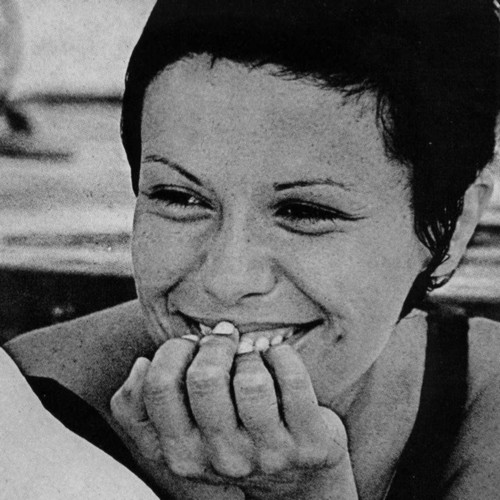Elis Regina - Brazilian Music
Born in Porto Alegre, Elis Regina started her singing career at age 11, singing on the radio.
In 1959, she signed her first professional deal with the radio station Rádio Gaúcha, and in the following year she moved to Rio de Janeiro, recording her first single for Continental. In 1961, the same record label released her first LP, "Viva a Brotolândia", which featured calypso and rock’n’roll tunes. After that, she returned to Porto Alegre, remaining until 1964, when she finally moved back to Rio de Janeiro.
Elis Regina sang at the famous Bossa Nova nightclub Beco das Garrafas. At that time, Elis Regina was hired by TV network TV Rio, where she performed with other famous musicians, such as Jorge Ben and Wilson Simonal.
Elis Regina became known nation wide in 1965, when she performed "Arrastão", by Edu Lobo and Vinícius de Moraes, at the first Brazilian Popular Music Festival. After that, Elis Regina recorded "Dois na Bossa" in collaboration with Jair Rodrigues. This record was so popular that they released volumes 2 and 3. Together with Jair Rodrigues, Elis Regina took part in one of the most important Brazilian Music TV shows, O Fino da Bossa, aired in 1965 on TV Record. This program was responsible for launching musicians and hit songs, such as "Canto de Ossanha" (Baden Powell/ Vinícius de Moraes), "Louvação" (Gilberto Gil/ Torquato Neto) and "Lunik 9" (Gil).
After that, Elis Regina’s career took off. Her 1966 album "Elis", included the first recording of the song "Canção do Sal", by Milton Nascimento. Elis Regina also helped boosting the careers of composers like Milton Nascimento, Ivan Lins ("Madalena"), Tavito/ Zé Rodrix ("Casa no Campo") and Belchior ("Como Nossos Pais"), by recording their early materials.
She took part in music festivals and political/musical movements, such as the “demonstration against electric guitars ", which aimed at protecting the “roots” of Brazilian Popular Music against foreign invasion.
Elis Regina’s international career was consolidated in 1969, when she toured around the main European and Latin American capitals. One of her most popular albums is "Elis e Tom" (with Tom Jobim), which was recorded in the United States. In 1979, she took part in the Montreux Jazz Festival, in Switzerland, and recorded one of her greatest hits, "O Bêbado e a Equilibrista", by Aldir Blanc and João Bosco. These two musicians wrote many of her hits, such as "Caçador de Esmeraldas", "Mestre-sala dos Mares", "Dois pra Lá, Dois pra Cá".
Some of Elis Regina’s unforgettable performances include "Upa, Neguinho" (Edu Lobo/ G. Guarnieri), "Águas de Março" (Tom Jobim), "Ponta de Areia" (Milton Nascimento/ Fernando Brant), "Folhas Secas" (Nelson Cavaquinho/ Guilherme de Brito) and "Romaria" (Renato Teixeira).
Elis Regina succumbed to an accidental drug-alcohol-tranquilizers overdose in 1982, at the age of 36. She had recorded dozens of top-selling records in her career. Elis Regina has sold over 80 million albums.
In 1995, the Sharp Music Awards ceremony paid a tribute to this amazing singer. Elis Regina’s two sons, João Marcelo Bôscoli (by her marriage with Ronaldo Bôscoli) and Pedro Camargo Mariano (by her marriage with César Camargo Mariano) are also musicians.![]() More on Brazil:
More on Brazil:![]() Five Star Hotels in Salvador Bahia
Five Star Hotels in Salvador Bahia![]() Natal - Rio Grande do Norte
Natal - Rio Grande do Norte![]() Balneario Camboriu - Brasilien
Balneario Camboriu - Brasilien![]() Jalapao Brazil is Pure Adventure and Nature
Jalapao Brazil is Pure Adventure and Nature![]() Brazilian Tourism - Social and Environmental Impacts
Brazilian Tourism - Social and Environmental Impacts![]() Ceara - Investment Opportunities
Ceara - Investment Opportunities![]() Brazilian Flavors - Bahia
Brazilian Flavors - Bahia
January 6, 2008
Elis Regina - Brazilian Music
0
comments
0
comments
|
|

 Welcome to Travel to Brazil.
Welcome to Travel to Brazil.
